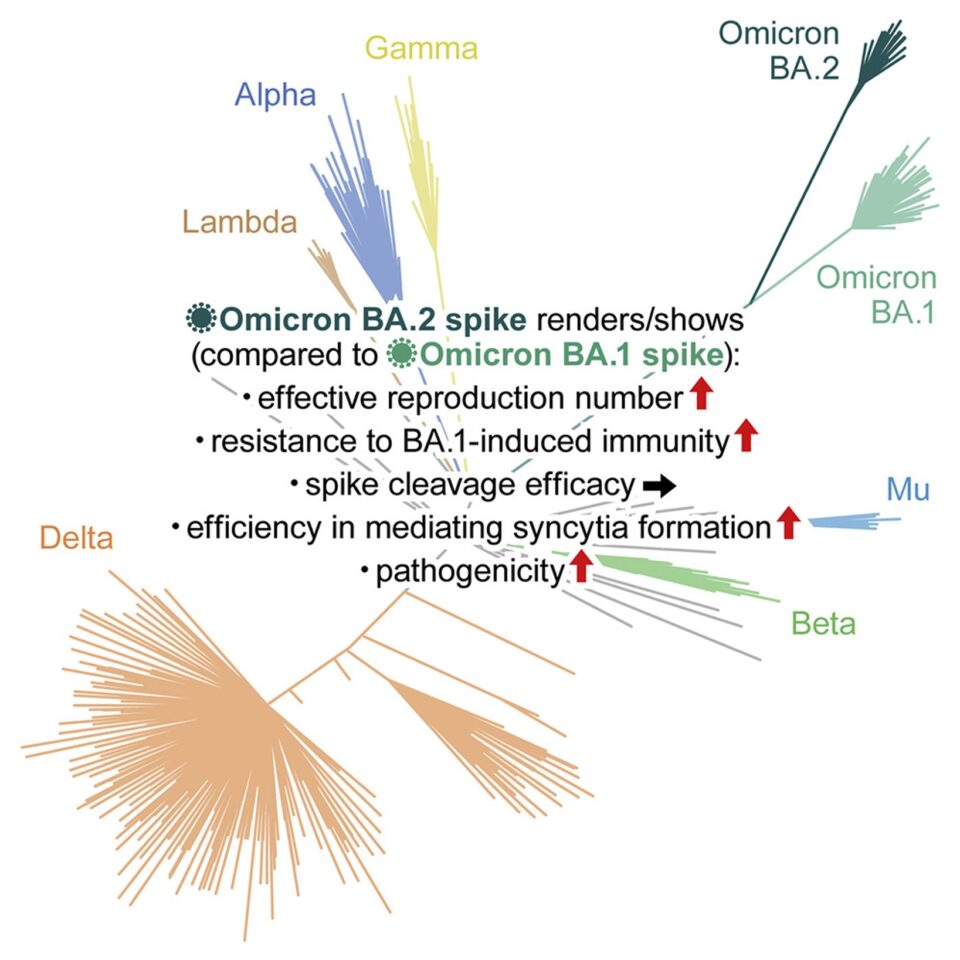Joint research involving scientists from ICReDD has recently been reported in the journal Cell. This study reported on the characteristics of the recent SARS-Cov-2 (COVID) BA.2 variant of concern. Statistical modeling of viral spread found that the BA.2 variant has an effective reproduction number 1.4 times higher than the original Omicron variant (BA.1) on average worldwide, suggesting the potential of BA.2 to outcompete BA.1 to become the dominant variant.
Researchers tested the effectiveness of vaccine-induced antibodies from convalescent humans against pseudoviruses of various COVID variants and found that, like BA.1, the BA.2 variant is highly resistant to vaccine-induced antibodies. Antibodies produced after a 3rd dose of the Pfizer/BioNTech vaccine did show neutralizing capability for both BA.1 and BA.2 variants, but were not as effective as against Delta and ancestral (B.1.1) strains of COVID. Additionally, BA.2 was found to be roughly 4 times more resistant to immunity gained from a BA.1 infection in an unvaccinated individual compared to a vaccinated individual, suggesting BA.1 infection without vaccination cannot provide immunity against BA.2. The BA.2 variant was also shown to be resistant to three antiviral therapeutic antibodies (casirivimab, imdevimab, and sotrovimab).
The researchers also studied the virus using a hamster model and observed higher viral load around the lungs for viruses featuring the BA.2 spike protein compared to the BA.1 spike protein, suggesting higher pathogenic severity of the BA.2 variant. Notably, another study did not see higher severity, but rather found comparable risk of infection and hospitalization for BA.2 and BA.1 variants in the human population. Thus, there may be important differences between humans and the animal model used here.
Click here to see the full paper.
(Please note that the press release for this paper is in Japanese only.)


